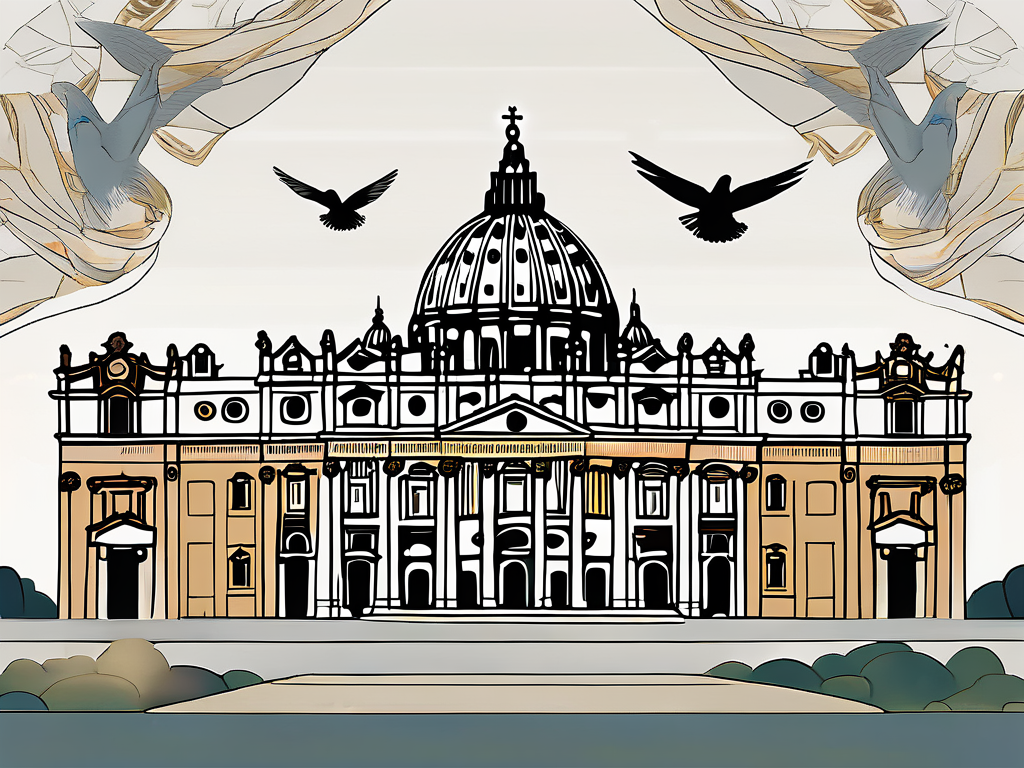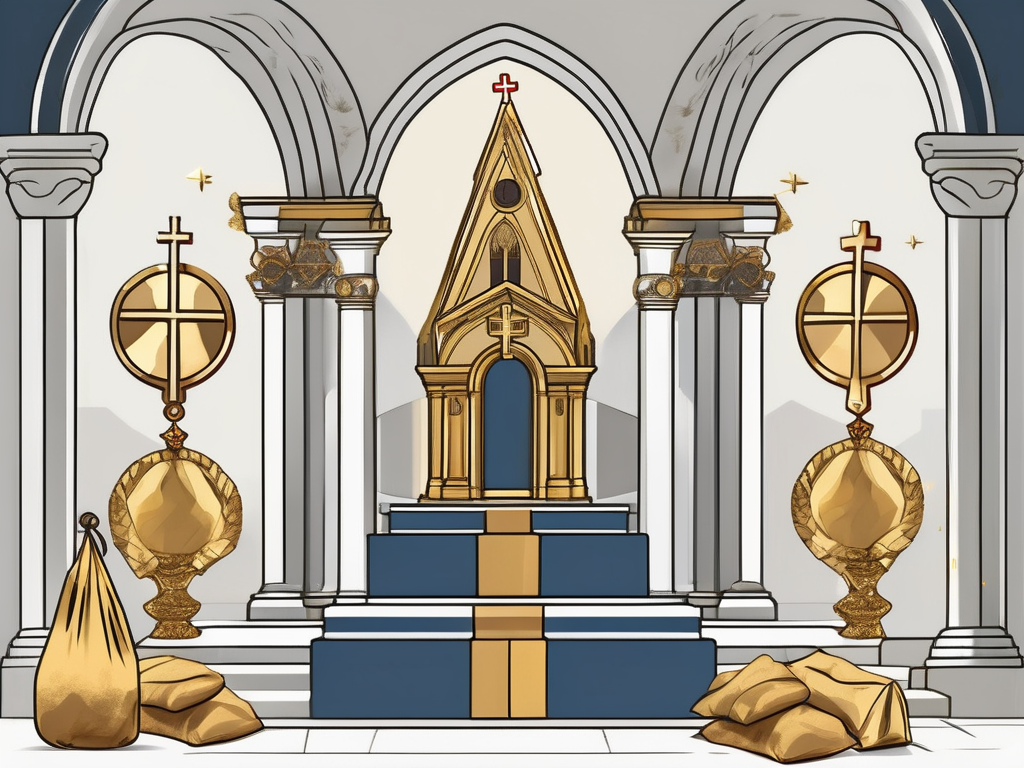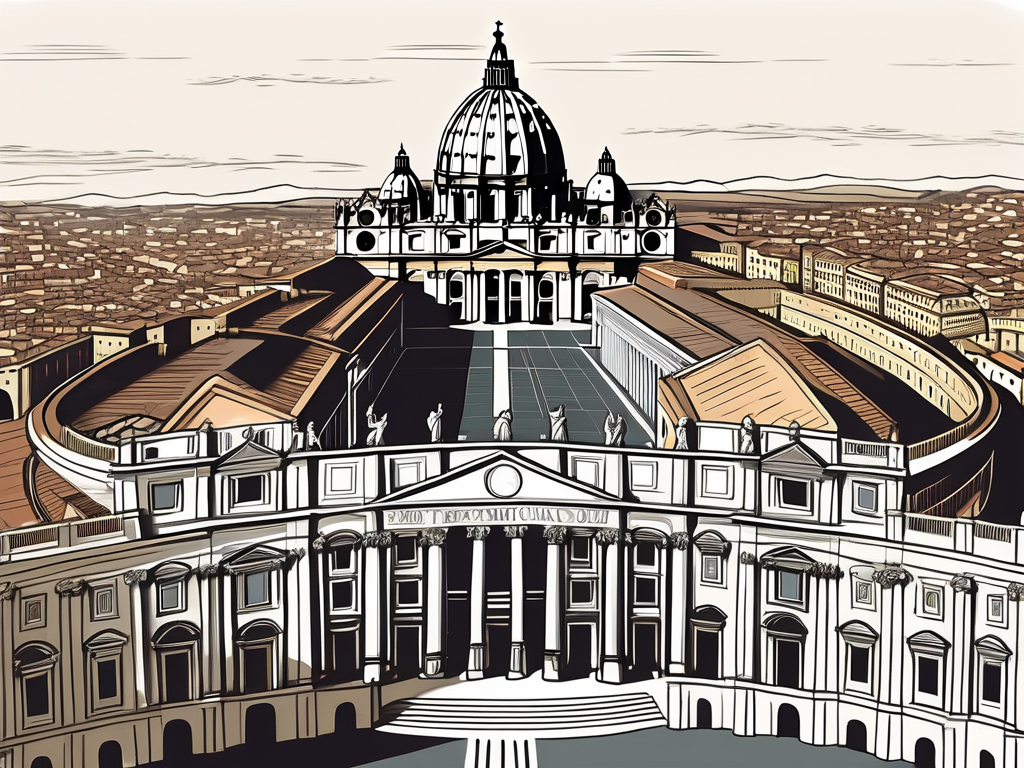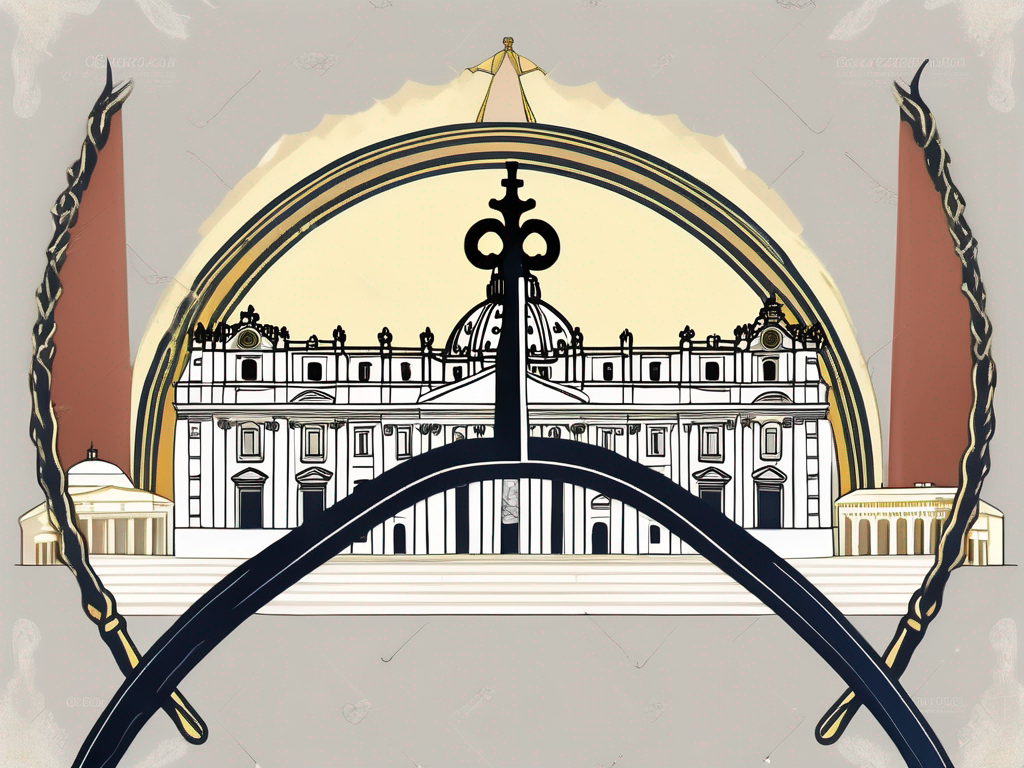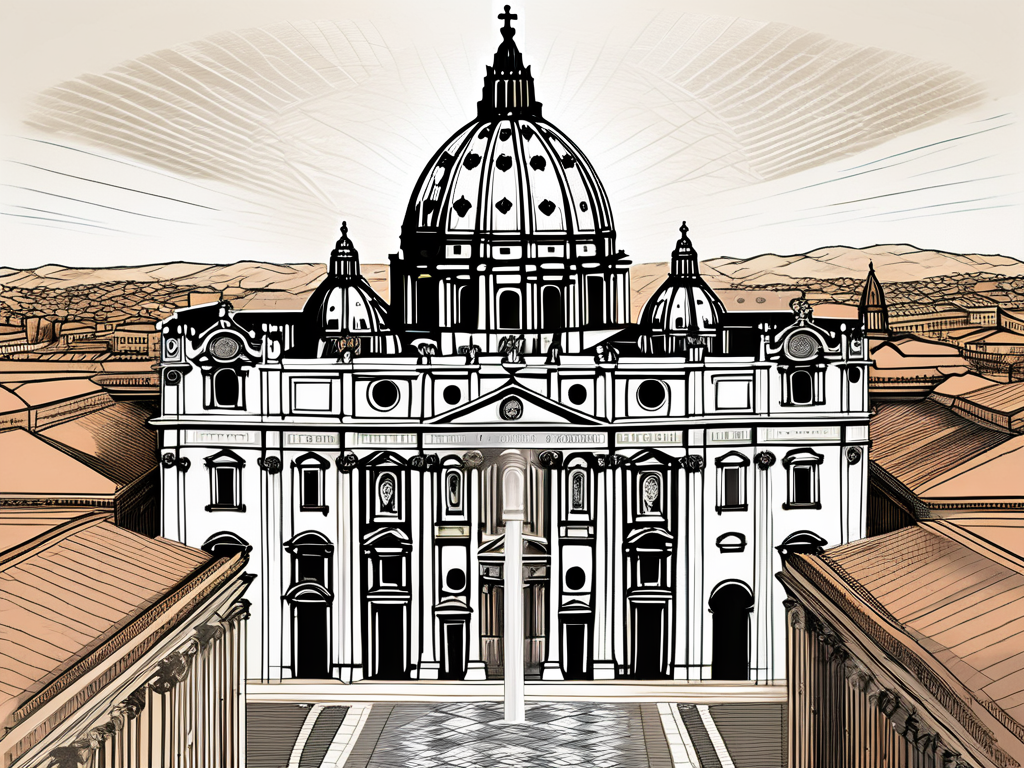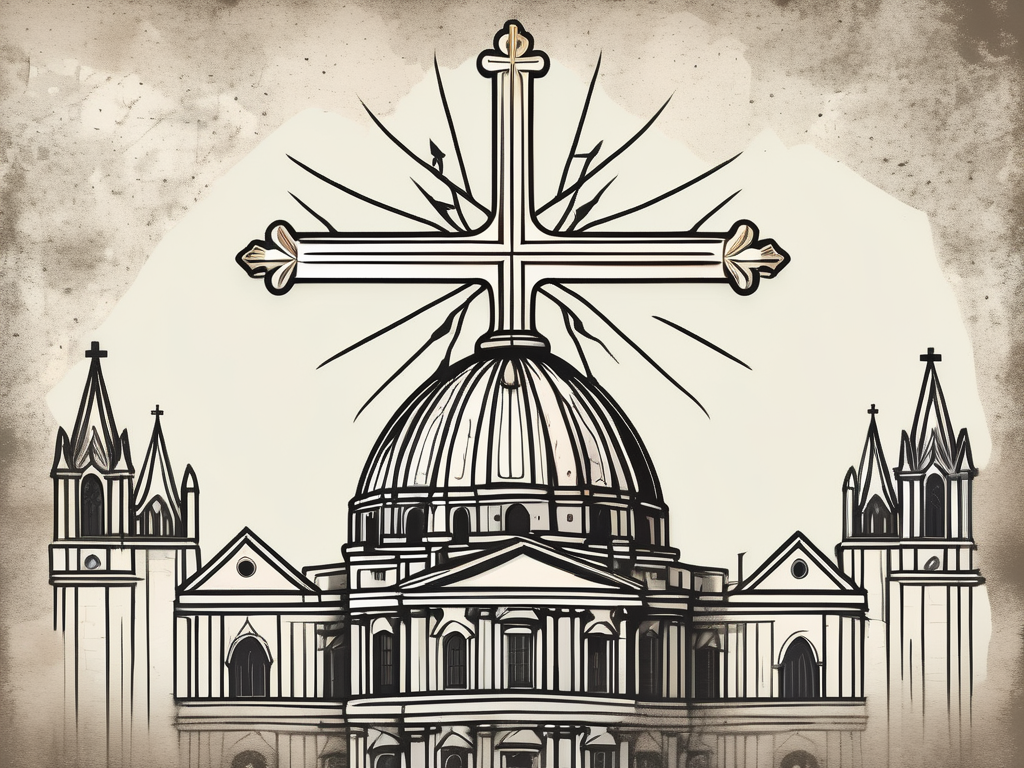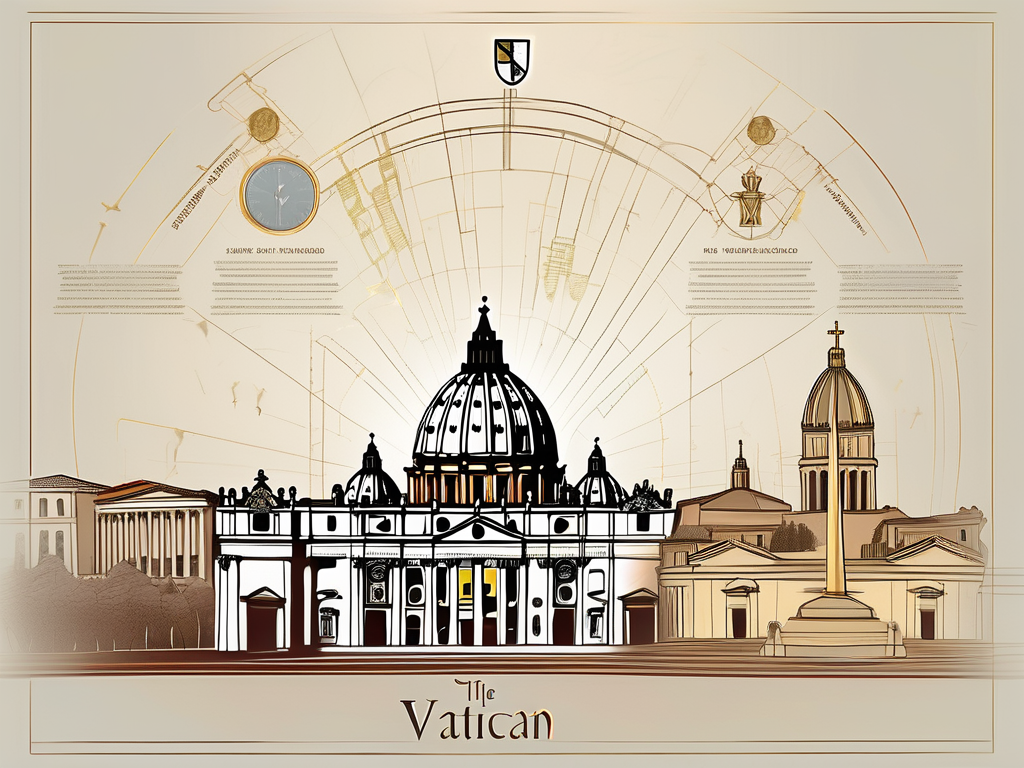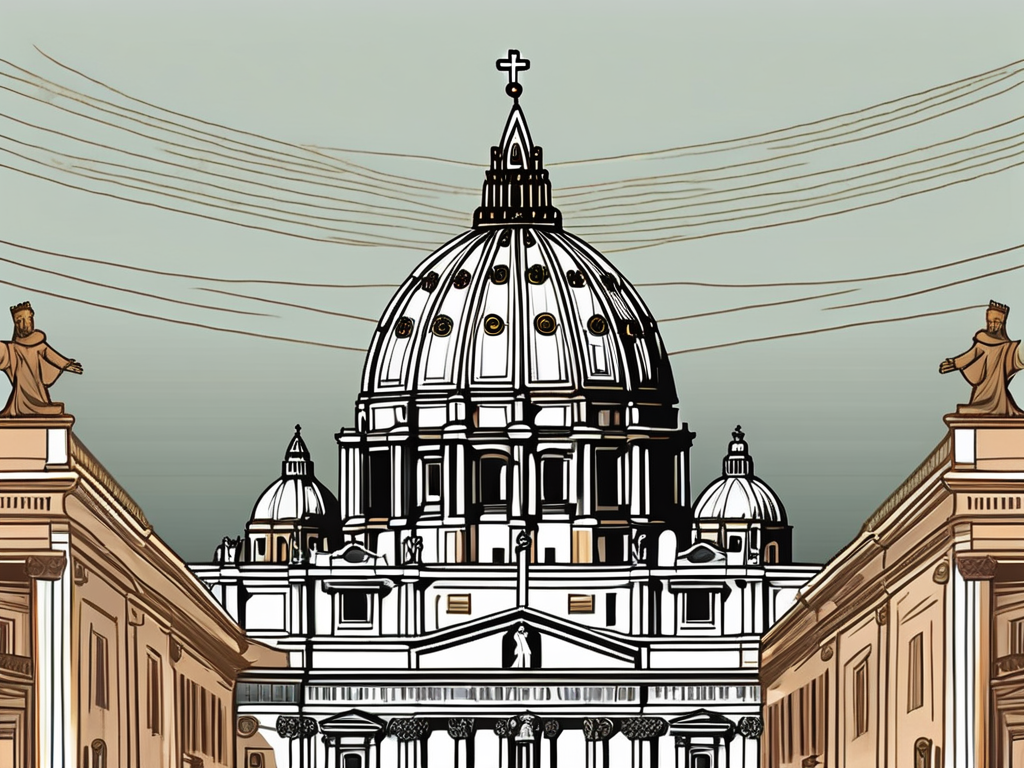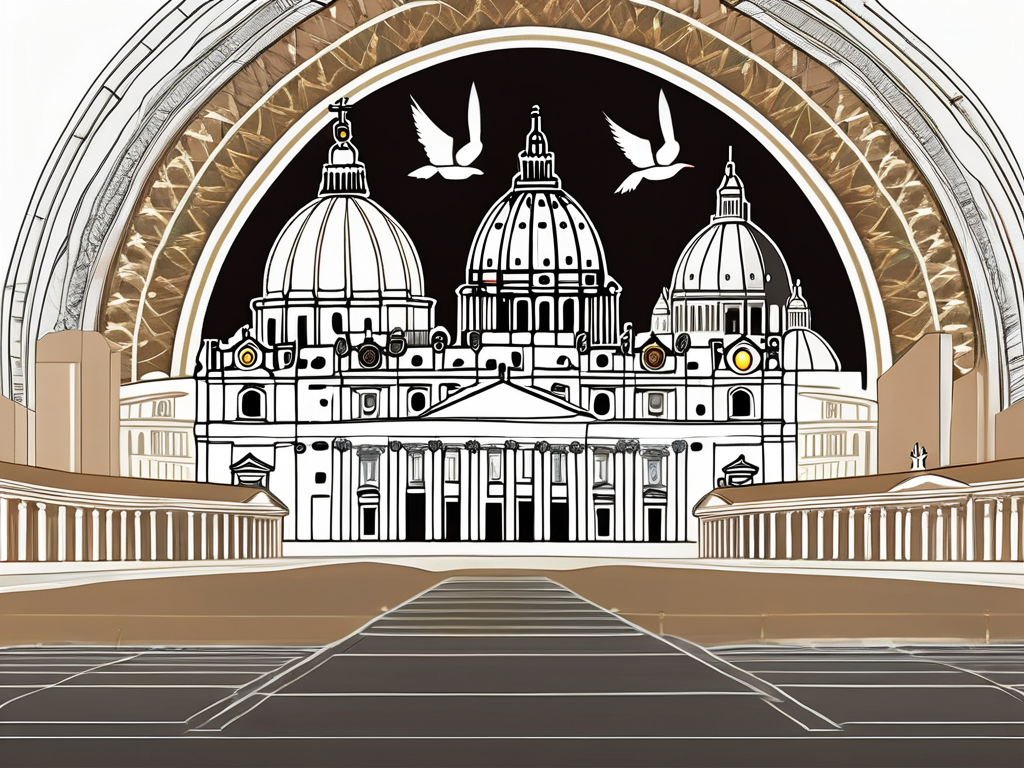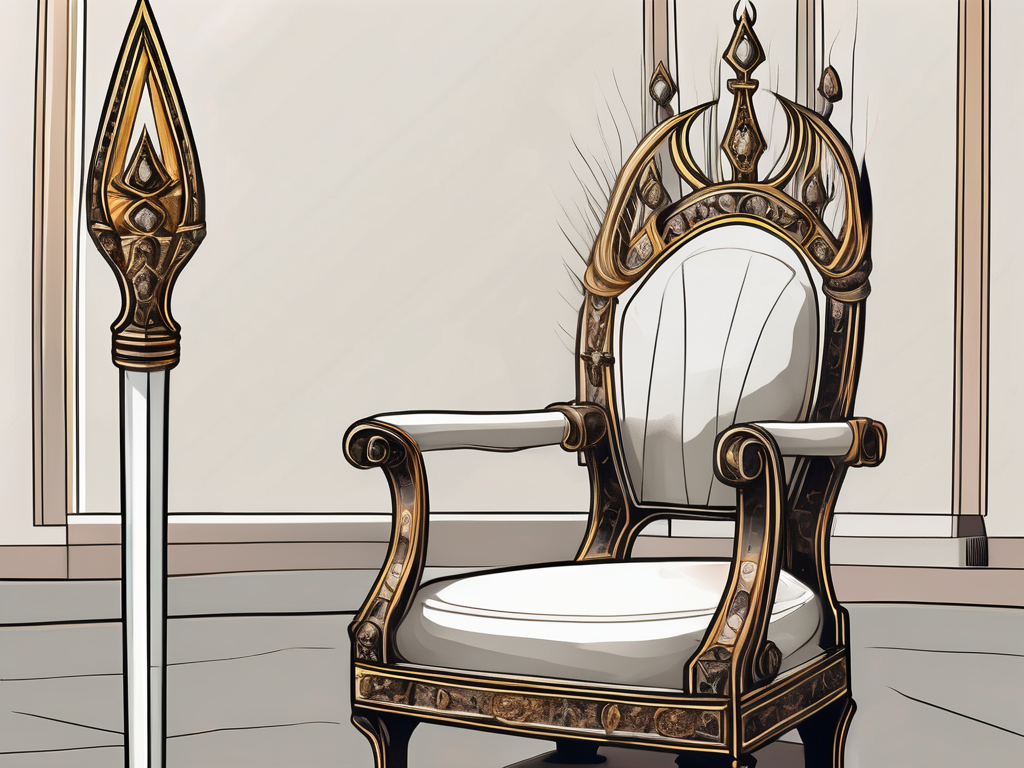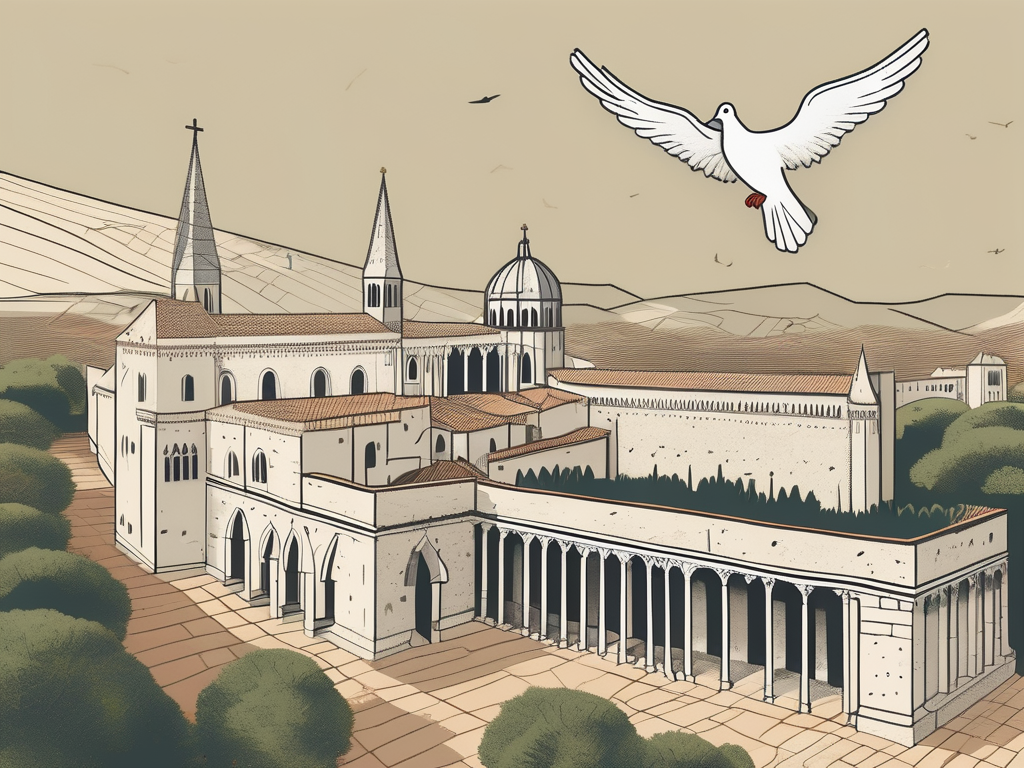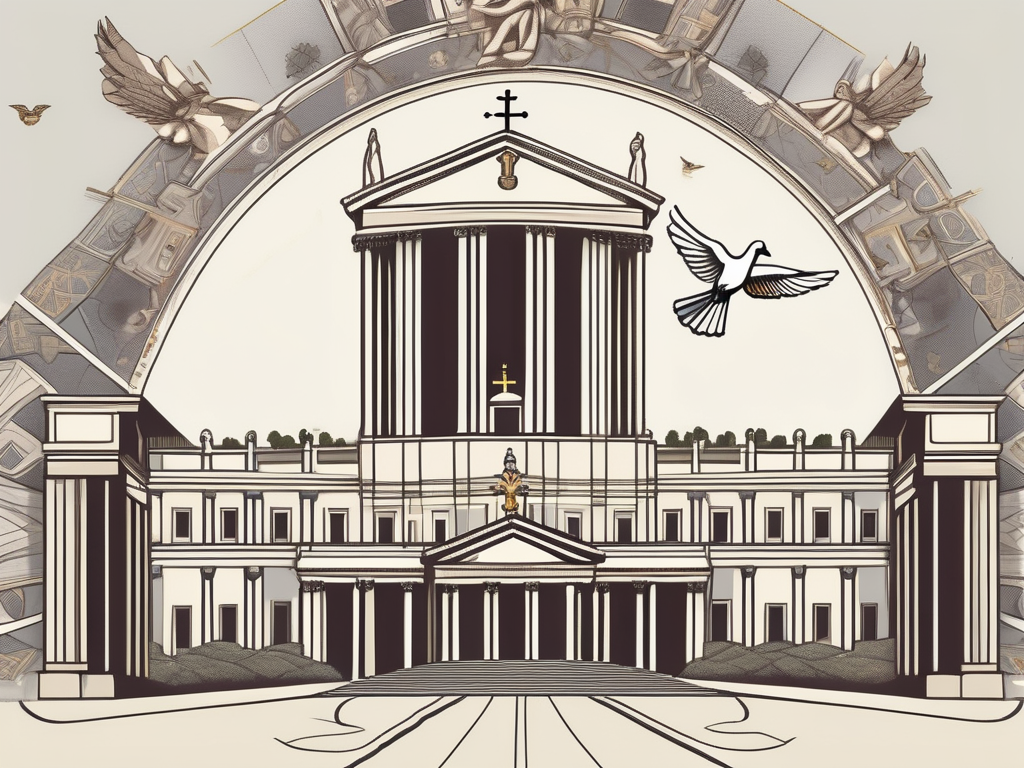Pope Nicholas II, whose name at birth was Gerard de Bourgogne, had a life filled with challenges, accomplishments, and controversy. Born into a noble family, Gerard grew up amidst the turmoil of medieval Europe, where conflicts between church and state were common. His journey from a young boy to the leader of the Catholic Church left an indelible mark on the papacy and its future.
Early Life and Education of Pope Nicholas II
Gerard’s family background played a crucial role in shaping his character and beliefs. His parents instilled in him a deep sense of devotion to the Catholic Church, which set the foundation for his future endeavors. Growing up, Gerard immersed himself in religious studies, seeking to understand the intricacies of church doctrine.
However, Gerard’s journey towards becoming Pope Nicholas II was not solely influenced by his family. His early life experiences and education also played a significant role in shaping his understanding of the complexities of the papacy and its challenges.
Family Background and Childhood
Gerard was born into an influential noble family, with ties to both the church and the ruling class. This background exposed him to the complex dynamics between religious and political powers from an early age. Witnessing the constant struggles for influence and authority, Gerard developed a keen sense of the challenges that the papacy faced and would face during his tenure.
As a child, Gerard was surrounded by influential figures who shaped his worldview. He grew up listening to his family’s discussions on matters of faith and politics, gaining insights into the delicate balance between the spiritual and secular realms. These early conversations planted the seeds of curiosity and intellectual exploration that would later drive his pursuit of religious studies.
Pursuit of Religious Studies
With an innate curiosity and a thirst for knowledge, Gerard delved into the world of religious studies. He devoted countless hours to reading sacred texts and engaging in theological discussions with renowned scholars. Through these experiences, he gained a deeper understanding of the inner workings of the Church and the complexities of its teachings.
Gerard’s pursuit of religious studies was not limited to theoretical knowledge alone. He sought practical experiences that would allow him to witness firsthand the challenges faced by the clergy and the faithful. He spent time volunteering at local churches, assisting priests in their daily duties, and observing the spiritual needs of the community.
During his studies, Gerard also explored the historical context of the Church, delving into the rich tapestry of events that shaped its development. He examined the influence of previous popes and their decisions, drawing valuable lessons from their successes and failures. This historical perspective provided him with a broader understanding of the papacy’s role in shaping the course of Christianity.
As Gerard’s knowledge and understanding of the Church deepened, so did his sense of responsibility towards its future. He recognized the need for strong leadership and a clear vision to guide the faithful through the challenges of the time. This realization fueled his determination to make a lasting impact on the papacy and the Church as a whole.
Ascension to Papacy
In a fateful turn of events, Gerard’s journey led him to the highest office of the Catholic Church. The challenges he faced during his ascension tested his resolve but ultimately positioned him to leave a lasting impact on the papacy.
Gerard’s ascension to the papacy was not a simple and straightforward process. It was a complex web of political maneuvering, religious influence, and personal ambition that culminated in his election as Pope Nicholas II. The Catholic Church, at that time, was at a crossroads, grappling with internal conflicts and external pressures.
Election and Consecration
After the passing of Pope Alexander II, Gerard was elected as his successor, taking on the name Pope Nicholas II. The election process itself was marred by controversy and political interference, as external forces sought to sway the outcome in their favor. The College of Cardinals, responsible for electing the new pope, was divided, with factions vying for their preferred candidate.
Gerard’s reputation as a learned scholar and a devout religious leader played a crucial role in his election. His extensive knowledge of theology and canon law, coupled with his unwavering commitment to the Church, made him a compelling choice for many cardinals. However, his ascent to the papacy was not without opposition.
Challenges Faced During Ascension
As Nicholas II assumed the papal throne, he inherited a Church in need of reform, with corruption and disputes tarnishing its image. The challenges he faced were immense, as he had to navigate through a treacherous landscape of power struggles and conflicting interests.
Powerful individuals within the Church, known as the Roman aristocracy, sought to undermine Nicholas II’s authority and manipulate the papacy for their own gain. They saw the election of a new pope as an opportunity to consolidate their power and influence within the Church. Nicholas II, however, was determined to resist their machinations and restore the Church’s integrity.
Additionally, the papacy was not immune to external pressures. Secular rulers, such as emperors and kings, often sought to exert their influence over the Church, using their political clout to shape the direction of the papacy. Nicholas II found himself caught in the crossfire of these power struggles, having to delicately balance the demands of both the Church and the secular world.
Despite these daunting challenges, Nicholas II remained resolute in his mission to reform the Church. He recognized the importance of restoring the Church’s credibility and unity, and he set out to implement a series of reforms that would address the issues plaguing the institution.
Throughout his papacy, Nicholas II focused on combating corruption within the Church, promoting transparency, and strengthening the authority of the papacy. His efforts laid the foundation for future popes to continue the work of reform and ensure the Church’s enduring legacy.
Reforms and Contributions to the Church
During his time as Pope, Nicholas II introduced significant reforms and made notable contributions to the Catholic Church. His initiatives aimed to strengthen papal authority, enhance the transparency of the cardinal election process, and reinforce the Church’s role in society.
Introduction of Cardinal Election Decree
Pope Nicholas II issued a decree that significantly impacted the cardinal election process. The decree established a set procedure for the selection of cardinals, with the aim of minimizing political influence and ensuring meritocracy. This reform shifted the power dynamics within the Church and laid the groundwork for future papal successions.
The introduction of the cardinal election decree was a watershed moment in the history of the Catholic Church. It marked a departure from the previous system, which often saw cardinals being appointed based on political alliances or familial connections. With this reform, Pope Nicholas II sought to bring transparency and fairness to the process, ensuring that the most qualified individuals would assume the role of cardinal.
Under the new decree, the selection of cardinals involved a rigorous evaluation of their theological knowledge, moral character, and commitment to the Church’s teachings. This thorough vetting process aimed to ensure that those chosen for this esteemed position would be true shepherds of the faithful, dedicated to upholding the values and principles of the Catholic Church.
Strengthening of Papal Authority
Nicholas II recognized the need to consolidate papal authority and assert the Church’s independence from secular powers. He worked tirelessly to establish the autonomy of the papacy, enabling it to speak with moral authority on matters of faith and morality. His efforts laid the foundation for the influential role that the papacy continues to play in shaping religious doctrine and guiding the faithful.
The strengthening of papal authority under Pope Nicholas II was a crucial step in the Church’s history. It marked a shift towards a more centralized and authoritative papacy, which would have far-reaching implications for the Catholic Church’s future. By asserting the Church’s independence from secular powers, Nicholas II ensured that the papacy could act as a moral compass, providing guidance and leadership to the faithful.
Under Nicholas II’s leadership, the papacy became a powerful force in the world, with the Pope’s pronouncements carrying significant weight and influence. This newfound authority allowed the Church to address pressing social issues, such as poverty, inequality, and injustice. The Pope’s moral authority became a beacon of hope for those seeking guidance and direction in a rapidly changing world.
Furthermore, Nicholas II’s efforts to strengthen papal authority also had a unifying effect within the Church. By consolidating power at the top, he ensured a more cohesive and coordinated approach to matters of faith and doctrine. This unity allowed the Church to present a strong and consistent message to its followers, fostering a sense of community and shared purpose.
Controversies and Conflicts
While Nicholas II’s reforms were met with widespread acclaim, his papacy was not without its controversies and conflicts. These challenges tested his leadership and resilience, shining a light on the intricacies of power struggles within the Church and beyond.
Disputes with the Holy Roman Emperor
Nicholas II found himself entangled in disputes with the Holy Roman Emperor, who sought greater control over the Church’s affairs. The tensions culminated in a power struggle that highlighted the delicate balance between spiritual and secular authorities. Nicholas II’s unwavering commitment to the Church’s autonomy during these conflicts solidified his legacy as a defender of the Church’s independence.
The Antipope Clement III
In a controversial twist, Nicholas II faced the challenge posed by the presence of an antipope, Clement III. This schism split the Church, instigating a battle for legitimacy and support. Nicholas II’s response to this crisis demonstrated his unwavering resolve in protecting the unity of the Church, ultimately prevailing over his detractors and preserving his papal authority.
Pope Nicholas II’s Influence on Future Popes
Nicholas II’s papacy left an indelible mark on the office of the pope, shaping the papal election process and establishing key principles that guided future pontiffs. His legacy continues to resonate within the Church and beyond.
Impact on Papal Election Process
By introducing reforms to the cardinal election process, Nicholas II ensured that future popes would be chosen based on merit rather than political influence. This change paved the way for a more transparent and accountable selection process, ultimately enhancing the integrity of the papacy and the Church as a whole.
Legacy in Church Doctrine
Nicholas II’s emphasis on papal authority and the Church’s autonomy laid the groundwork for future popes to assert their influence on matters of doctrine and morality. His unwavering commitment to the Church’s integrity and unity continues to inspire popes and shape their approach to leadership.
Pope Nicholas II’s life and legacy exemplify the challenges and triumphs of a medieval pontificate. His contributions to the Church and the papacy have left an enduring impact on religious institutions and continue to shape the path of the Catholic Church to this day.
